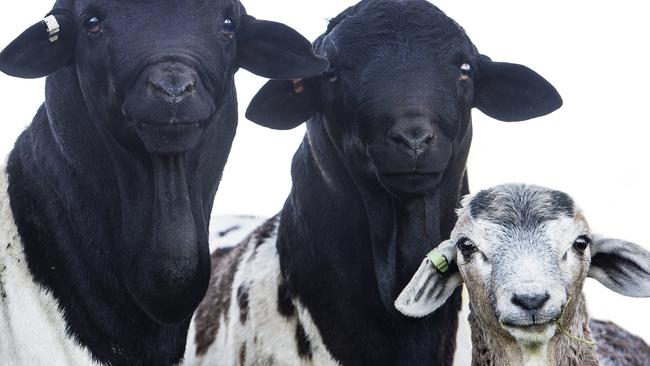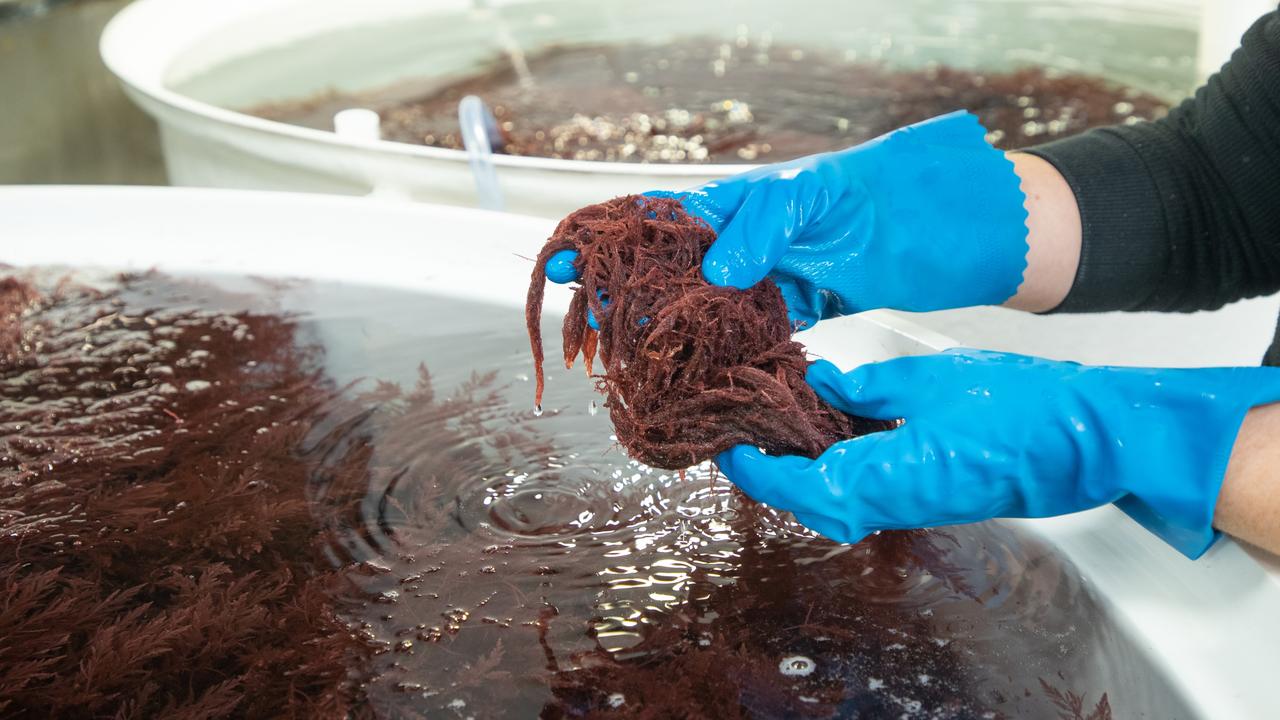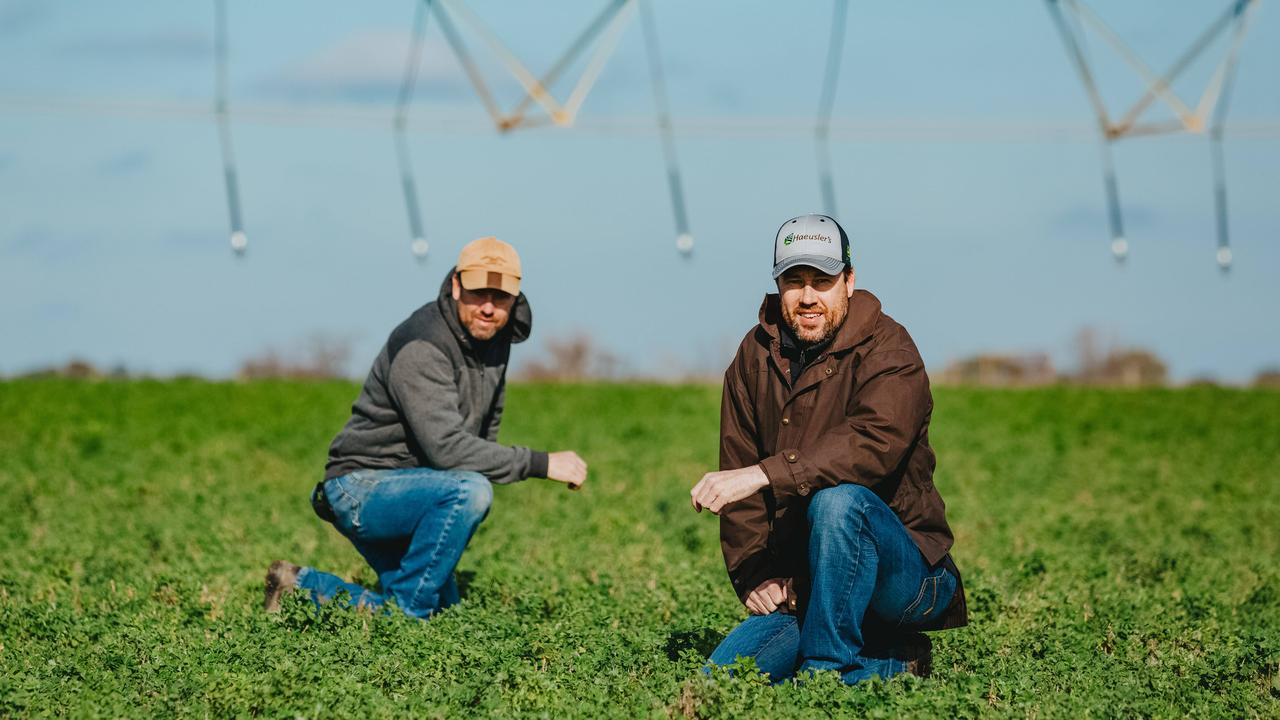Rare Persian sheep bounce back from the brink
Bred to thrive in some of the world’s harshest conditions, colourful Persian sheep are gaining a foothold in Australia thanks to Colin and Meredith Walker’s breeding efforts.
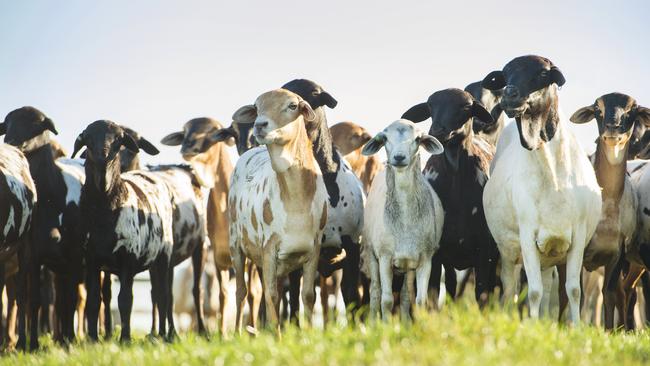
Read Farm magazine, exactly as it was printed
- Why it pays to subscribe to The Weekly Times+
IT SOUNDS physically impossible. Yet here they are; 40 purebred Persian sheep that started life more than 14 years ago in South Africa.
“They were collected in the Karoo at Dell Stud in South Africa and had been frozen in North Melbourne for 11 years,” says Dr Colin Walker, explaining the unbelievable story of how 100 fertilised sheep embryos were imported by Jean van Niekerk in 2006, preserved in a freezer for more than a decade, then brought to life using modern science.
Today, the miracle ewes are two years old and graze happily on Colin’s Mornington Peninsula property, where he and his wife, Meredith, run Coolibah Persian Sheep Stud. “We managed to get 40 of those 100 embryos to be living, breathing, walking sheep,” Colin says. “So that was quite amazing.”
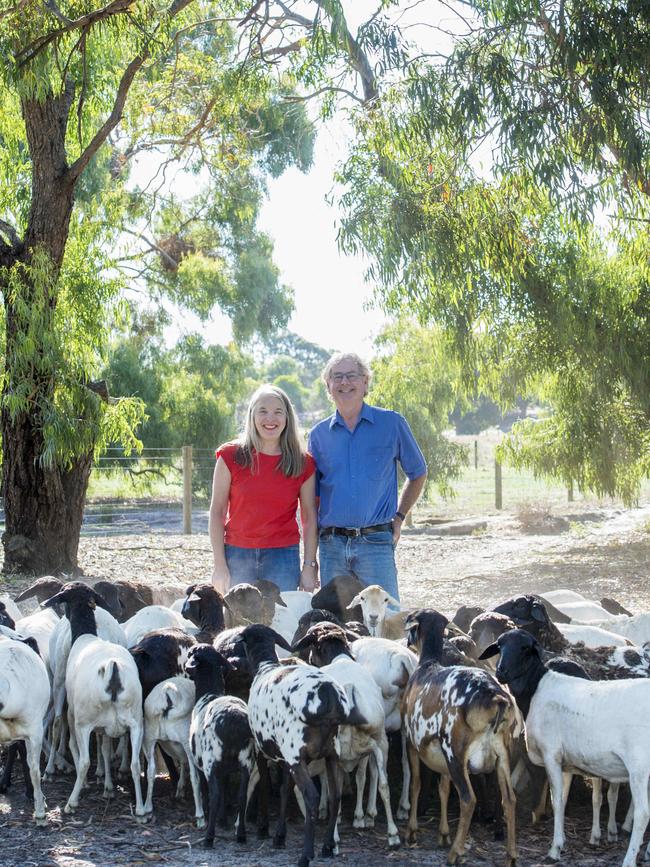
The ewes are a result of the Walkers’ impressive breeding program of super-ovulation and embryo transfer, made possible with the help of reproductive experts Jean and Moozie van Niekerk. Colin and Meredith have increased their flock from an initial three ewes and one ram in 2008, to more than 300 purebred Persians today and run the rare breed sheep across two 16-hectare properties at Pearcedale.
The couple has been largely responsible for a big boost in the number of Persians in Australia, helping safeguard the breed from disease and increase genetic diversity.
“We didn’t start out to do anything like that, but it just sort of happened,” says Colin, who recently retired from a 38-year career as an accomplished avian vet.
Colin spent 23 years of his vet career as a top doctor in the lucrative sport of pigeon racing – where fast birds are worth millions and race prize money can hit six digits. Surprisingly, involvement in the sport put him on the path to breeding rare sheep.
Global travel was a large part of his job. Overseas trips took him to Europe, the Middle East and Africa, where he and Meredith first encountered Persians. “We saw the sheep in Africa, thought they were really nice, that was in 1999. But life was busy,” he says. “At that time we just had some pet black sheep to keep the grass down on our six acres.”
Originally from sub-Saharan Africa, Persians are small-bodied shedding sheep that are well adapted to survive in hot, dry climates. The Persian was crossed with the Dorset Horn to create the Dorper. Similarly to that genetic cousin, the breed can thrive by foraging on scant vegetation. Colin says his sheep often choose to eat weeds before the lovely ryegrass clover pasture he has worked so hard to grow.
Colin and Meredith bought their first Persians in 2008 from breeder Dennis Russell, who imported genetics in 1999, before regulations tightened in 2006, stopping sheep imports from that country.
For about five years, Coolibah was just a hobby, with Colin growing the flock slowly using traditional joining. Since his retirement, however, the enterprise has morphed considerably.
“We wanted to change them from being just a quirky funny breed that only a few people had – and they were being sold for thousands of dollars each, you know like when the alpacas first came in – to a more affordable sheep that people could buy,” says the 65-year-old.
“The fortunate thing was, being a veterinarian, I thought super-ovulation was the way to go. I knew how to do it in theory. But because I was a bird veterinarian, I hadn’t done it hands on.”
So he contacted small ruminant vet Jean van Niekerk at Moama for help. Together, they used the van Niekerks’ Dorper crosses as surrogate mothers and bred from Colin’s best ewes.
The intense procedure starts with a progesterone implant to synchronise the ewes’ cycles. Next, the hormone HCG stimulates follicles, followed by a hormone called serum gonadotrophin that makes the follicles produce eggs. Then sperm is surgically inserted into the fallopian tubes – “where the eggs are, so those eggs have no chance of escaping,” Colin explains. Finally, the embryos are removed and each surrogate ewe is implanted with two potential lambs.
“In one of our ewes, we got 24 lambs off her in one year,” Colin says, “that is three times her whole life’s output in six months.
“When you are super-ovulating them, and getting on average six to eight lambs per sheep per time, you’re picking just the absolute best ewes. It has been quite exciting not only getting structurally better sheep and producing a larger number … but the colours have actually started to appear as well.”
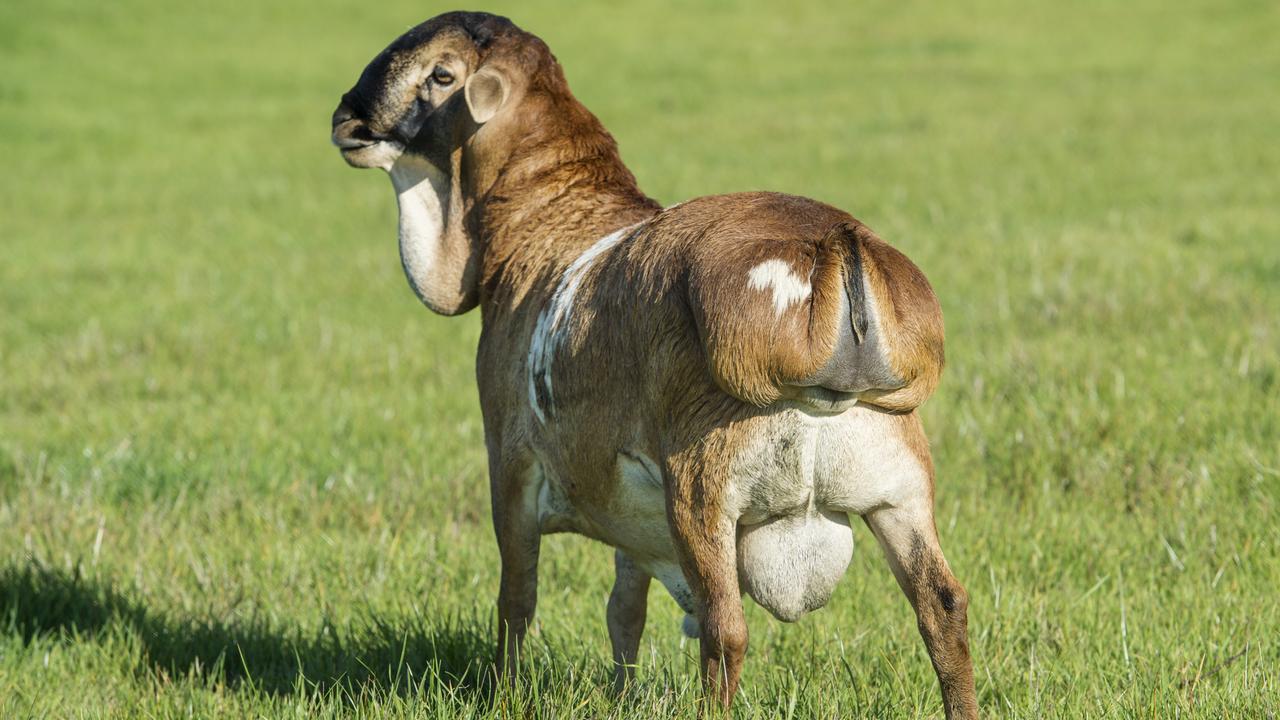
Colin’s vet expertise made the super-ovulation operation possible and affordable.
“By the time you buy recipients, feed them, and all the hormones, not counting the vet time, it is still hundreds of dollars per sheep on the ground,” Colin says.
“It would be cost prohibitive if you were just breeding sheep that were going to be sold to market. But Persian sheep command quite a price.
“Until February last year, we felt every sheep was precious. There were only 700 purebreds in the country and we owned 400 of them.”
After the successful implant cycles, the Walkers made about 75 sheep available for sale last year.
“We didn’t put super high prices on them, $400 for a ram, $600 for a ewe, and they all sold in four days,” says Colin, explaining they are ideal for families and people who are new to livestock ownership.
International interest has led to export shipments to the United Arab Emirates, Bangladesh and the US, with one ram sent to the UAE fetching $8000. Overseas buyers choose Coolibah because export restrictions make it impossible to buy Persians from South Africa.
“That country has foot and mouth disease, and all of the vesicular diseases, and scrapie, which is a prion-based disease,” Colin says. “Because we have established our flock here and Australia is free of all those diseases, we are a little bit of a genetic ark. So that has been quite fortunate.
“The thing is, we started with these sheep and thought this would be a bit of fun and they would be nice lawnmowers.
“But, it has become more and more about the fact the African sheep are very different to the European-based sheep. Wool breeds are now dependent on being shorn. Most Australians think that is normal, but what is normal through 30 or 40 per cent of the rest of the world is sheep that don’t have wool.”
Above all else, however, the Walkers appreciate the animals for their beauty and their charm.
“They have real personalities,” Colin says, “you get to know them all. They are remarkably intelligent.”
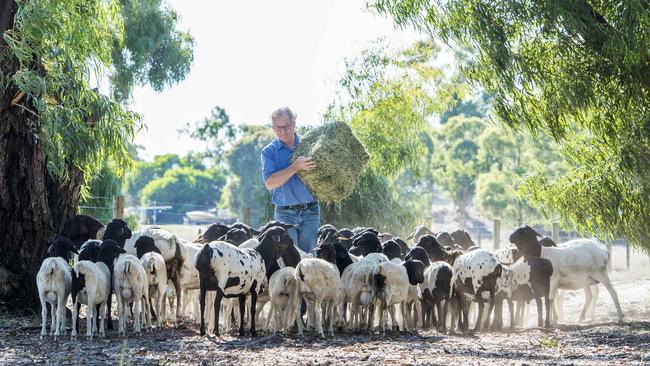
RARE SIGHT
Once considered “critically rare” with fewer than 300 breeding ewes in Australia, Persians are now classified by the Rare Breeds Trust of Australia as “endangered”, with fewer than 500 ewes in 2018.
Rare Breeds Trust sheep co-ordinator Judy Barnet says it is important to preserve rare breeds because they contain inheritable traits such as longevity, docility and hardiness that can become lost in modern hybrid animals.
“They have unique genetics – a lot of our modern composite breeds used these genetics as a base for their breeds – and once a breed is gone these genetics are lost forever,” she says.
Traditional Persians, also called Kleur Kops, have black heads and white bodies, while the Skilders – or speckled varieties – come in speckled brown, red and tricolour coats as well as exotic sables, which are a golden honey with black markings. A dilute gene can turn these colours paler, with red becoming roan and black turning greyish blue.
Persians have a distinctive pad of tail fat, neck flap called a dewlap and a tiny vestigial tail called a sambokkie, which does not need to be docked.
“Persians are attractive because they are small, shedding, placid and pretty,” Colin says. “There is no shearing at all. There is absolutely zero flystrike. And they are real foragers.”
FARM FILE: Coolibah Persian Sheep Stud
Colin and Meredith Walker run Coolibah Persian Sheep Stud with a flock of more than 300 purebred Persians across two 16-hectare properties at Pearcedale. Most of their customers are small acreage landholders and hobby farmers who are looking for an easy-to-manage breed.
Persians are a shedding sheep; adults are small at about 50kg and they survive well on scant vegetation.
The Walkers’ high-rainfall region is not ideal for Persians, which prefer dry climates. Colin’s vet skills have come in handy to keep minor problems, such as footrot and parasites, at bay. He controls worms with a standard drench program.
Where: Pearcedale, Mornington Peninsula
More info: persiansheep.com
MORE FARM MAGAZINE
TEENAGER’S EGG BRAND CRACKS SUPERMARKET SUCCESS
UNSTOPPABLE OPTIMIST SALLIE JONES LEADS GIPPSLAND JERSEY EXPANSION

